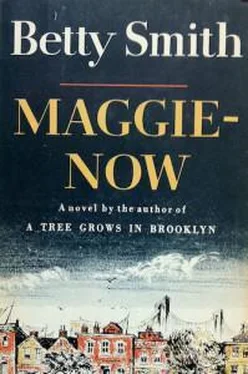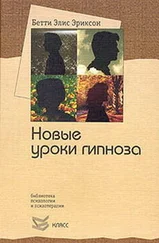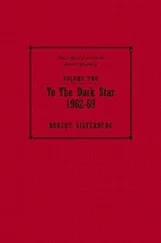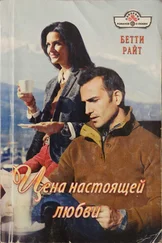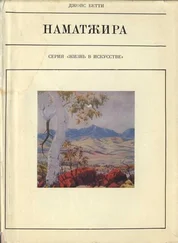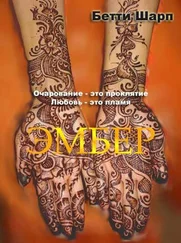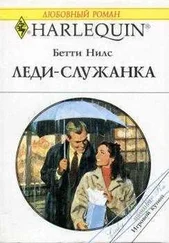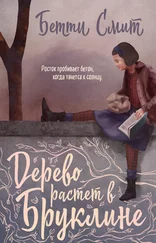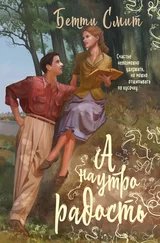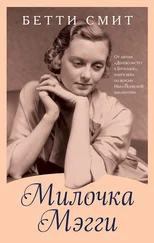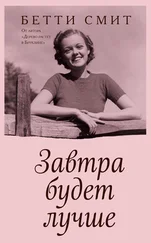Бетти Смит - Maggie-Now
Здесь есть возможность читать онлайн «Бетти Смит - Maggie-Now» весь текст электронной книги совершенно бесплатно (целиком полную версию без сокращений). В некоторых случаях можно слушать аудио, скачать через торрент в формате fb2 и присутствует краткое содержание. Жанр: Проза, на английском языке. Описание произведения, (предисловие) а так же отзывы посетителей доступны на портале библиотеки ЛибКат.
- Название:Maggie-Now
- Автор:
- Жанр:
- Год:неизвестен
- ISBN:нет данных
- Рейтинг книги:3 / 5. Голосов: 1
-
Избранное:Добавить в избранное
- Отзывы:
-
Ваша оценка:
- 60
- 1
- 2
- 3
- 4
- 5
Maggie-Now: краткое содержание, описание и аннотация
Предлагаем к чтению аннотацию, описание, краткое содержание или предисловие (зависит от того, что написал сам автор книги «Maggie-Now»). Если вы не нашли необходимую информацию о книге — напишите в комментариях, мы постараемся отыскать её.
Maggie-Now — читать онлайн бесплатно полную книгу (весь текст) целиком
Ниже представлен текст книги, разбитый по страницам. Система сохранения места последней прочитанной страницы, позволяет с удобством читать онлайн бесплатно книгу «Maggie-Now», без необходимости каждый раз заново искать на чём Вы остановились. Поставьте закладку, и сможете в любой момент перейти на страницу, на которой закончили чтение.
Интервал:
Закладка:
oust to meet her sweetheart smelling of frying fish.
He also smelled the incense she had burning in a tin jar lid on the stove. He assumed it was some religious observance. (His wife used to burn incense on special religious days.) He would have been upset had he known she was burning it to take the fish smell out of her hair.
Maggie-Now was going out to meet Claude. Her strong feeling that she'd never see him again had changed to a stronger feeling that she would see him again. The declaration of war had something to do with it. Also, the candle she had burned in church that morning. She dressed after supper.
"So you're going our again," he said.
"Yes.,' "What about the boy?"
"He is your son, Papa. You should look after him once in a while."
After she had left, Pat prepared to go out, too. He wanted to talk about the war to somebody. Denny followed him from the bathroom where he waslled, to the bedroom where he changed his clothes.
"Why are you follying me around?" he asked.
"Because I don't want to be left," said Denny.
Standing before the mirror, struggling with his collar, with L)enny standing next to him, Pat examined his son's face in the mirror. Again, he wondered where the boy got his red hair from. There had been no red heads in the Moore or l\loriarity family. Timothy Shawn had had red hair. It occurred to Pat that maybe a hundred or so years ago, back in Ireland, a Moore had married or mated with a Shawn and the red hair had worked through to Denny.
Somehow, the thought pleased Pat.
[212 1 I'd be proud, he thought, if the boy grew up to be half the man that Timmy Shawn, the bastid, God rest his soul, was.
He turned around and looked directly at the child. The boy didn't have the light lashes that usually went with red hair. He had dark lashes like his mother and he had his mother's eyes, too.
He thought of Mary with the baby in her arms; how he had said he'd always wanted a son to go hunting and fishing with. He had a small moment of prescience.
When I'm a very old man, he thought, I'll remember how the little boy wanted to be with me this night and I'll cry me heart out and wish I was young again so I could stay with the little boy. So I will grieve when I am old.
But tonight I am young and I don't want to stay with the little boy. I want to talk to men about the war.
He compromised. "You can come along when I go out," he said.
The boy: looked up at him and put his hands together in ecstasy and smiled the way Mary used to smile at Pat when he said or did something nice. Pat's heart turned over a little.
Walking down the street, the boy slipped his hand into his father's and said: "I like to go out with you."
The man felt a drop of moisture in the corner of one eye and felt a second of anguish. Why does he always give in? If he'd only tell me to go to hell! Then I'd know what to do. First I'd beat the be-Jesus out of him for talking that way to his father. Then I'd be proud of him for standing up to his old man and not taking no guff from me or nobody.
They came to a candy store. Pat said: "Here's five pennies. You go in and buy whatever you want. And look around. See if there's anything you want for Easter. Not more than a quarter, hear? And maybe I'll buy it for you."
The boy gave him what Pat called 'that l\lary look" a look of gratitude and happiness combined. "And wait for me here."
Pat asked for a short beer. The bartender said maybe he'd like to think it over. A small beer now cost a dime and would cost fifteen next week. On account of the war, explained the bartender.
The saloon was crowded. There was a lot of loud talk;
they talked loudly about the war and much louder about beer going up a nickel a glass. The little fellow that Pat was sure he had seen someplace was in the center of a group of men, waving his glass [715 1
of beer and giving his version of the outbreak of war. Pat made his way over to the man.
"I thought you'd be in uniform by now," he sneered. To Pat's surprise, the little man shook his hand.
"The honoryou did me," said the stranger, "yourself saying I should enlist and me wllat'll never see fifty again.
You gave me me youth back. Do you not remember me, Pathrick, your old friend from night-school days>" Pat knew it was Mick Mack, Jor, he thought, Ho else in all the world would take an insult for a complir~ie~t.
"Ah, you've changed,' said Mick Mack.
"Not as much as you," said Pat, "the bad way you look, I didn't recognise you."
"And I didn't recognise you, Pathrick, the grand w ay you look after all these years."
Mick M[ack's story was soon told. He had sustained a bacl; injury when a big treacle had run into his trolley car and, after years of litigation, the truck company had settled fifteen dollars a week on him for life. His wife was dead and his children all married. He didn't see much of them. In his own words, they had no room for the old man. But he was happy, he insisted, with his fifteen dollars a week and the room and board he got at the home of a grand widder woman for ten dollars a week.
"She owns her own house," he said, "on Schaeffer Street, just off Bushwick Avenue. She runs a hat store for ladies in the basement and upstairs is the boarders. And, oh, the grand table she sets! Her husband," he continued, "rest his soul, even though I never laid eyes on him, deft the widder well fixed with the house in her name, and, I
wouldn't be surprised, a bit of money to go with it, and she with a darlen shape in the bargain."
"And I wouldn't put it past the likes of yourself," said Pat, "to look at her darlen shape and get idears."
"Ah, no. 'Tis her cooking has won me heart. Do you come and eat Easter Day dinner with me, Pathrick. Only thirty-fi~-e cents for outsiders."
"No," said Pat. "Home I eat for nothing. And eat good, too.
"I'll treat," said Mick Mack. "Friendship, to me, is more than money " [2~4] "I'll eat with you then," said Pat. "Not that I want to, but because I'm sorry for a miserable little man, the likes of you, having to pay to have someone eat with him."
"Ah, you talk so mean," said the beaming Mick Mack, "because you don't want me to find out the goodness what is in you.', "Miss me"' asked Claude.
"Yes."
"That's the way it should be," he said, tucking her arm into his. "I am taking you to dinner tonight."
"That's nice." She was pleased. He didn't ask and she didn't tell him she'd already had her evening meal.
He took her to an upstairs chop suey restaurant on the corner of Broadway and Flushing Avenue. After they were seated, they made an agreement not to discuss the war.
"Let us talk only of ourselves," he said. "Our time together may be shorter than we know. Now: Will you have beef or pork chop suey?"
"Could I have something else?" she asked. "You see, I've never eaten Chinese food before and. ."
"Start on something familiar, then. You like eggs?"
"Oh, yes."
The Chinese waiter was at their table. He had come silently. 'iYiss?" he inquired.
"Shrimp eggs foo yung for the lady and pork chop suey for me.
"Yiss."
The waiter brought a pot of tea and two little bowls.
"Oh, how beautiful," she exclaimed, admiring the bone-white china with its larkspur-blue Chinese markings.
"And this!" She ran her hand over the raffia-wrapped handle of the teapot and smiled across the table at him.
He picked up one of the little bowls and looked at the bottom. "Yes. Made in China. The Orient." He smiled back at her and her smile widened. "~411 the Orient is in your smile," he half spoke, half sang.
Читать дальшеИнтервал:
Закладка:
Похожие книги на «Maggie-Now»
Представляем Вашему вниманию похожие книги на «Maggie-Now» списком для выбора. Мы отобрали схожую по названию и смыслу литературу в надежде предоставить читателям больше вариантов отыскать новые, интересные, ещё непрочитанные произведения.
Обсуждение, отзывы о книге «Maggie-Now» и просто собственные мнения читателей. Оставьте ваши комментарии, напишите, что Вы думаете о произведении, его смысле или главных героях. Укажите что конкретно понравилось, а что нет, и почему Вы так считаете.
